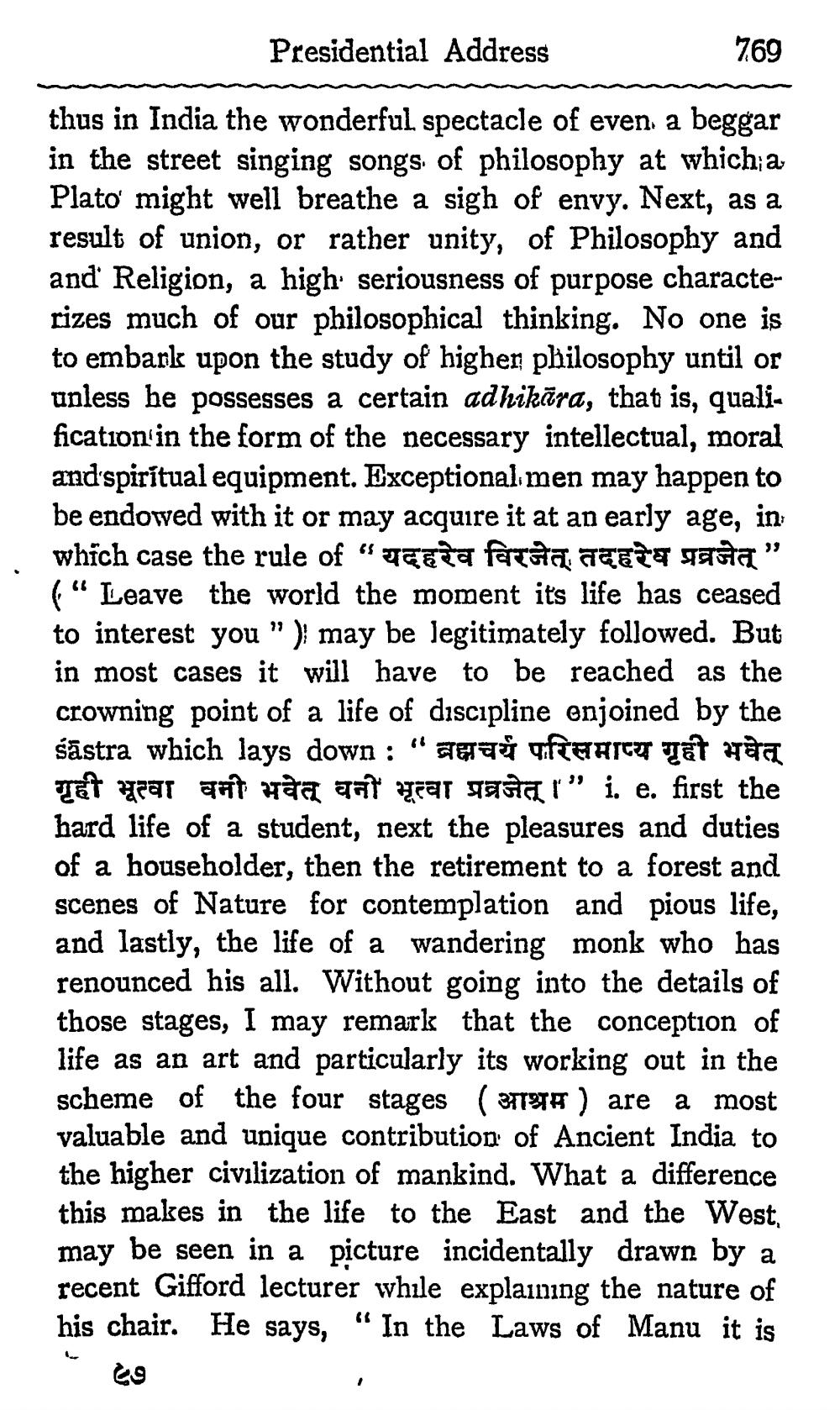________________
Presidential Address
769
thus in India the wonderful spectacle of even a beggar in the street singing songs of philosophy at whichịa, Plato' might well breathe a sigh of envy. Next, as a result of union, or rather unity, of Philosophy and and Religion, a high seriousness of purpose characterizes much of our philosophical thinking. No one is to embark upon the study of higher philosophy until or unless he possesses a certain adhikära, that is, qualification in the form of the necessary intellectual, moral and spiritual equipment. Exceptional, men may happen to be endowed with it or may acquire it at an early age, in which case the rule of "gaeta fariña naate taha" ( " Leave the world the moment its life has ceased to interest you " ) may be legitimately followed. But in most cases it will have to be reached as the crowning point of a life of discipline enjoined by the śāstra which lays down : "hai THAT Tat eta Tet par gat wala gat at gastar" i. e. first the hard life of a student, next the pleasures and duties of a householder, then the retirement to a forest and scenes of Nature for contemplation and pious life, and lastly, the life of a wandering monk who has renounced his all. Without going into the details of those stages, I may remark that the conception of life as an art and particularly its working out in the scheme of the four stages ( 317 ) are a most valuable and unique contribution of Ancient India to the higher civilization of mankind. What a difference this makes in the life to the East and the West, may be seen in a picture incidentally drawn by a recent Gifford lecturer while explaining the nature of his chair. He says, “In the Laws of Manu it is




